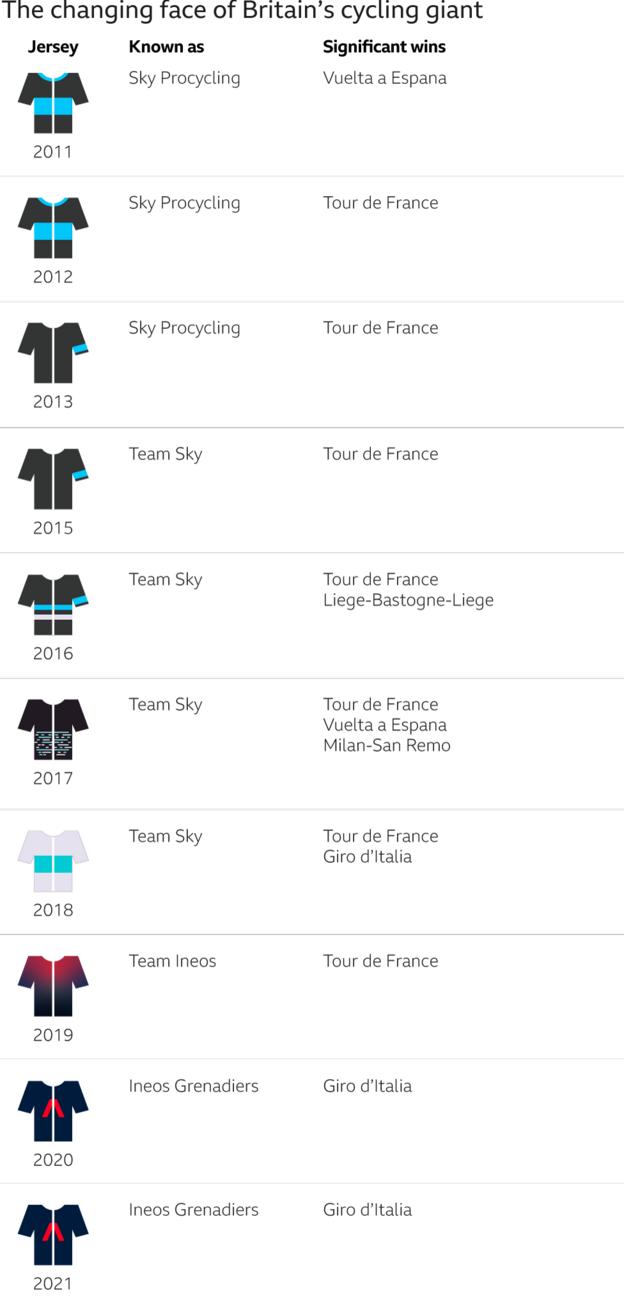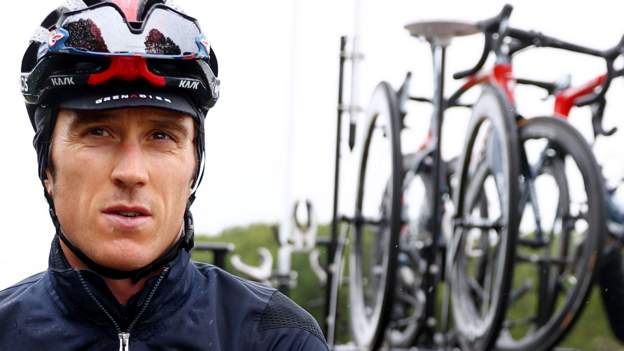Last updated on .From the section Cycling
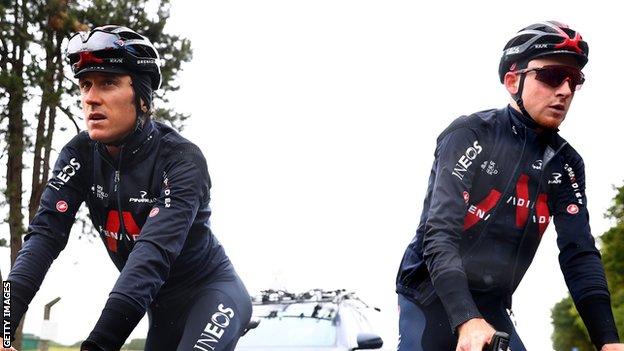
| Dates: 26 June – 18 July |
| Coverage: Live text commentary on each stage on the BBC Sport website and app |
It’s a familiar sight in France – the famous dark blue shirt with red trim, iconic after so much success in top sporting competitions in recent times.
Sadly for the French public, when it comes to cycling that image is reserved for the all-conquering British Ineos Grenadiers – formerly Team Sky.
Ineos command what is likely to the sport’s biggest budget – estimated to be about £40m a year – but they start the Tour in a strange place – as underdogs.
Last year’s surprise capitulation and abandonment of Egan Bernal in the Alps led to the race being dominated by two Slovenian riders.
Tadej Pogacar won for UAE-Emirates in dramatic circumstances after the race’s other surprise capitulation – Primoz Roglic folding on the penultimate stage’s time trial, after he and his Jumbo-Visma team controlled almost all of the three-week race.
Roglic, 31, has since won the Vuelta a Espana while Pogacar, 22, has been untouchable – seemingly taking a step up from real talent to a status from which cycling greatness is assumed.
Brailsford’s fighting talk
Ineos team principal Sir Dave Brailsford does not seem too concerned – warning rivals to “expect the unexpected”.
“We have changed our race philosophy this season to being more open and aggressive,” he said.
There’s little doubt the team selection is aggressive – 2018 winner Geraint Thomas returns much stronger after a one-year absence, alongside the likely other protected lead rider Richard Carapaz of Ecuador, who won the Tour de Suisse warm-up race.
Giro d’Italia winner Tao Geoghegan Hart supports both, along with another five riders who could win races themselves – unless, perhaps, they were up against the Slovenians.
Since the team’s inaugural Tour in 2010, there has never been such a daunting talent set against them as Pogacar – or such a daunting distraction in Roglic.
Ineos have won seven Tours since 2012, perfecting the ‘Sky Train’ – optimising the potential of teamwork, to pick the riders who best complement the protected lead rider at the expense of winning individual sprint stages and time trials along the way.
They will need to be the ultimate team this year to stop Pogacar.
He has been beaten once in a stage race since last year’s Tour – by Roglic, in a lower-level event.
Roglic, meanwhile, once again showed fallibility in the latter stages of a race – crashing twice and forfeiting victory on the final stage of this year’s Paris-Nice.
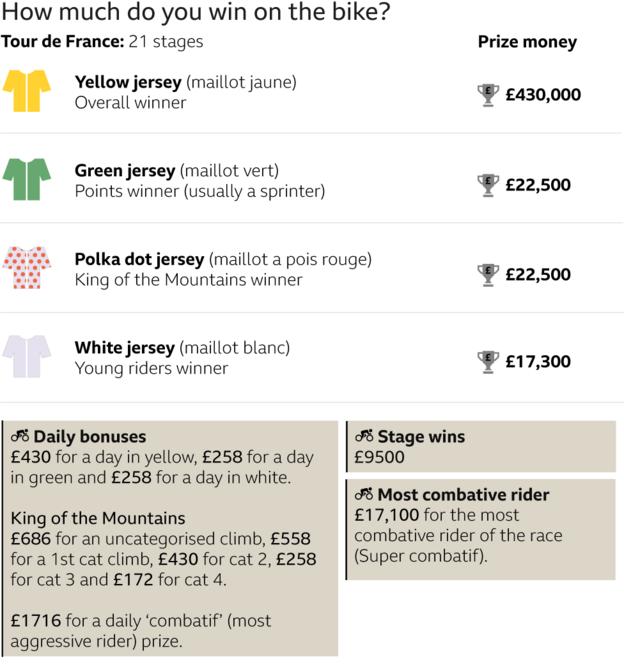
The route
The route of this year’s Tour is as varied as ever but, like last year, has two important time trials.
Roglic is up there with the world’s best on a time-trial bike, and Pogacar dispelled any doubt about his ability when he took yellow up to La Planche des Belles Filles last year.
Thomas, though, has won impressively on shorter courses on the Tour before – and this year’s penultimate stage is just that.
But it could all be decided in the mountains, where Carapaz will come alive – a double ascent of the iconic Mont Ventoux helps make up for a lack of action in the French Alps, and a heavy final week in and around the Pyrenees will be just as testing.
No rider has any obvious advantage on this route.
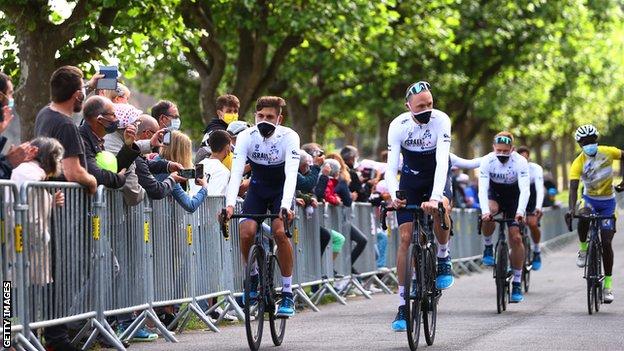
Froome’s long-awaited return
Ineos are not the only British icons searching for the good times.
Four-time winner Chris Froome rides in a Tour for the first time since 2018 after sustaining horrific injuries in the 2019 Criterium du Dauphine warm-up race.
The 36-year-old’s rehabilitation has been agonising, with physical and psychological setbacks alongside a global pandemic.
After last year’s unavoidable fanfare from his multi-million-pound deal to join a team owned and run by billionaire Sylvan Adams, Froome is resigned to a supporting role.
His performances have fallen well short this season, losing substantial time to the peloton, and often finishing minutes behind.
Froome has admitted he hoped his recovery “would have been faster” but his multiple fractures have caused many complications, and he has had to “take a step back to go forward” more than once.
The more detail he goes into, the more you realise just how lucky he is to be riding a bike at all.
Cavendish comeback
One Briton who will be celebrating pretty much whatever happens is Mark Cavendish.
The 36-year-old tearfully claimed his glittering career was “probably over” last year, before he was unexpectedly picked up by top Belgian team Deceuninck-Quick Step to help fill in while Fabio Jakobsen recovered from terrible head injuries sustained in a crash at the Tour of Poland.
Asked if Cavendish would play a part in the Tour after winning four stages in Turkey in April, one insider responded: “Behave.”
But an injury to last year’s green jersey winner Sam Bennett left Quick Step with little choice.
Cavendish is one of the sport’s most successful riders, just four Tour stage wins short of Eddy Merckx’s all-time record.
No-one expects him to equal that now, but this is not a golden age of sprinters – Australia’s Caleb Ewan and France’s Arnaud Demare are the fastest, but not the most consistent in a field which could see multiple winners of the sprint stages.
And then there are the puncheurs – the explosive one-day racers who are also fighting for the green jersey, including seven-time winner Peter Sagan, powerful Dutch debutant Mathieu van der Poel, and France’s snarling hero Julian Alaphilippe.
Alaphilippe has worn yellow several times already, especially during his valiant attempt at overall victory in 2019.
But he’s not built for the high mountains, and without that kind of rider France’s wait for its first yellow jersey since Bernard Hinault in 1985 will almost certainly mean at least one more year of hurt.
